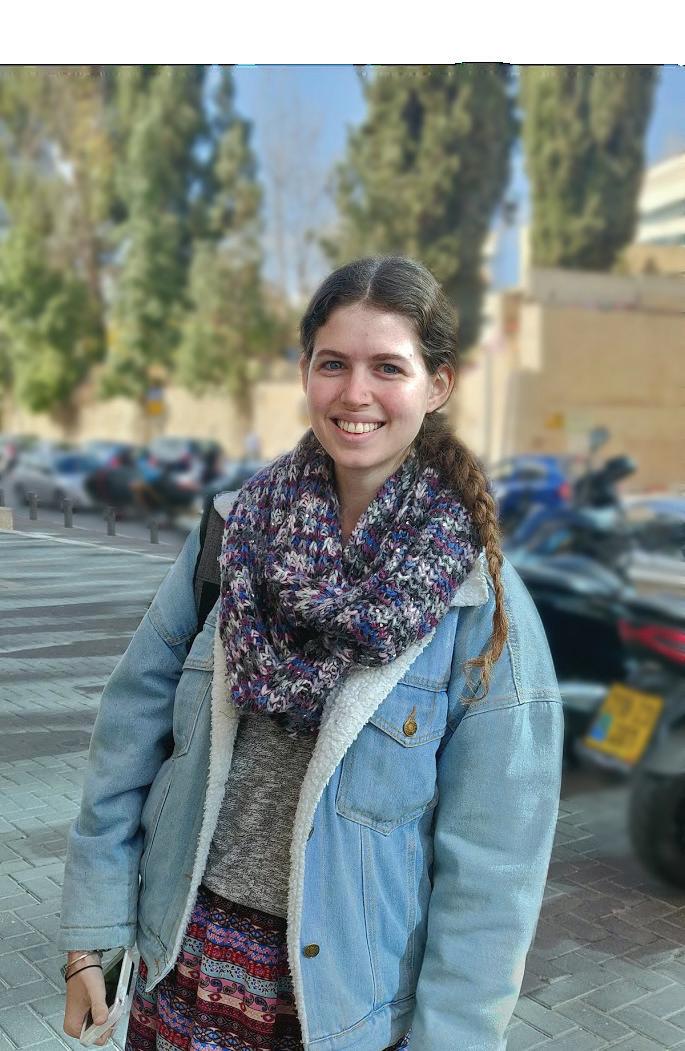
15 minute read
From a High Roof Rabbi Dr. Tzvi Hersh Weinreb
THE PERSON IN THE PARSHA KI TISA
BY RABBI DR. TZVI HERSH WEINREB OU Executive Vice President, Emeritus
Advertisement
From a High Roof
It is hard to sustain a spiritual high. Those of us who are committed to religious observance know that long periods of successful adherence to our standards are sometimes rudely interrupted by sudden, seemingly inexplicable lapses. Longenduring spiritual experiences yield to momentary temptations and vanish in a flash.
Experts in the psychology of religion, some of them within our own Jewish tradition, understood this. They have warned us that the experience of closeness to God waxes and wanes, comes and goes. It is a process of advance and retreat, of approach and withdrawal.
The Sages of Talmud refer to this phenomenon with a telling metaphor: “From a high roof to a deep pit, me’igra rama le’bira amikta.”
Parents often witness this strange process in their children and are perplexed by it. A child commits himself to good behavior, cleans his room and does his other chores for months on end without complaint. Then, out of the blue, he fails to
come home by curfew one evening, and a panic-stricken call to the police ensues.
As a former psychotherapist, I can attest to the experience of all my fellow practitioners, especially those who deal with adolescents, of long periods during which the patient or client maintains a long streak of weeks of healthy adjustment, which are followed by moments of profound crisis.
I remember well a teenager I saw early in my training, when I was thankfully still under the supervision of a senior professional. The young man, from an affluent family, was arrested after many incidents of shoplifting. I worked with him and his family, and he seemed to have developed insight into his actions and great self-control. Months passed by, and then, one rainy night, I was summoned to the police station because he had shoplifted again. “From a high roof to a deep pit.”
In this week’s Torah portion, Ki Tisa, we have a dramatic example of this puzzling phenomenon. For the past many weeks, we have read of a people making political and spiritual progress. They are freed from slavery. They witness wonders and miracles. They experience the revelation of the Almighty and the giving of the Law. They donate generously to the construction of the Tabernacle. They enjoy the manna,
Trusted US/Israeli tax services for over 30 years


• U.S. Income Tax Returns • Israeli Tax Returns • Foreign Bank Reports (FBAR) • IRS Audit Representation • IRS Streamlined Program • Corporate Tax Planning • Estate and Trust Tax Planning • $1400 U.S. Child Credit • Investment Planning • Bookkeeping Services • Other Accounting Services
It’s never too late to file prior years’ tax returns! 02-999-2104 | 09-746-0623 | 03-527-3254 052-274-9999 Email: alan@ardcpa.com www.ardcpa.com

Within reach. Your future.
B.A. in Business Administration B.S. in Computer Science Machon Tal International Program for Women

Complete Degrees in English 3 Year Programs Torah Environment
For more info contact Siona Margrett +972-58-692-4951 siona@jct.ac.il
www.jct.ac.il/en
And then, one fine day, their leader Moses returns a little late from his rendezvous with the Lord Himself, and the bubble bursts. Gone is the exhilaration of freedom, and gone are their cries of commitment to a new way of life. Yesterday: “We will do and we will heed.” (Exodus 24:7) Today: “Let us make for ourselves a Golden Calf.” (Exodus 32:1)
In all of my years of Torah study, of carefully reading the weekly parsha, it is this sudden backsliding that confounds me more than any other narrative. And of course, I am by no means the first to be amazed by this rapid deterioration of commitment, by this utter transformation of a people from a faithful, grateful, selfdisciplined folk into a wild crowd, dancing and singing in orgiastic enthusiasm around an idol.
Every year, I attempt anew to resolve this puzzle to find an answer for myself and for those who looked to me to help them understand the Bible. This year, I find myself contemplating a new answer based upon a very unusual source.
Some years ago, the Wall Street Journal carried an essay by one Amy Chua. The essay was entitled Why Chinese Mothers Are Superior. The author describes her own experience as a Chinese mother and the strict expectations she has of her adolescent daughters.
This column evoked strong reactions all over the world. Many believed that her approach was the correct one and represented a much-needed corrective antidote for the permissiveness of American parents. Others found her approach to be nothing short of cruel and even sadistic.
While I personally found some of her prescriptions worthy of consideration, I believe that most of them are excessive. But in her article, she makes an astute remark that I find to be memorable and useful, despite, or perhaps because of, its simplicity.
“Chinese parents understand that nothing is fun until you are good at it. And you can only be good at it if you work at it.”
We all would like our activities to be fun and our lives to be enjoyable. But the roads to fun and the paths to joy are effortful ones. Hard work and persistence are necessary in all fields of endeavor, and religion and spirituality are no different. They too require diligence and toil.
No wonder, then, that we are capable of many months of perfect religious behavior, of adherence to the highest moral standards, and of spiritual edification. But it’s hard work, as promises of “easy fun” often surround us and seduce us.
There is an insight here that can help parents, teachers, and psychotherapist deal with the unpredictable shifts in the behaviors of those they work with.
There is also a profound lesson here for those who look for an explanation of the Golden Calf episode in this week’s Torah portion. The way of life that the Jewish
people were just beginning to learn is a wonderful and rewarding one. But the wonder and the rewards, the fun, come only when we are “good at it”, when we work hard to perfect our lives.

We all are well advised to be on guard against the promise of “easy fun”. The Golden Calf took no work at all. The verse in Exodus 32:34 suggests that the Jews had to only cast their gold into the fire and the Golden Calf effortlessly emerged. The Golden Calf imposed neither moral restrictions nor ethical standards. Just dancing and singing. Fun?

Amy Chua teaches us that that’s not fun. Having real fun in life requires that “you be good at it”, good at life. And that takes work.



SMILES
Faculty, OU Israel Center
‘Making’ Shabbat
In the kiddush of Shabbat morning, we say the famous pesukim from our parashah, “veshamru bnei Yisrael et hashabbat, laasot et hashabbat ledorotam brit olam” (Shemot 31;16). The question is obvious, how does one ‘make’ the Shabbat? One can understand the need to guard the Shabbat, but how does one make it a covenant forever? The answer to these questions can help us understand the beauty of Shabbat and our relationship to it.
Rabbi Moshe Bick, in Chayei Moshe suggests that ‘guarding’ Shabbat includes our responsibility to uphold every aspect of the laws of Shabbat. However, it is not enough to be mindful of the do’s and don’ts; the technical laws of Shabbat should be augmented with the feeling, tone and distinctiveness of the day. Accordingly, the ‘making’ of Shabbat involves creating an atmosphere conducive for a Shabbat experience. This special mood is achieved by focusing on Torah learning, tefilot and zemirot. Thus, we bring eternal holiness in our lives and the lives of our families. Rav Schwab told of his Friday night visit at the home of the Chafetz Chayim. The
great tzadik asked his talmidim, what did the mann taste like if one was not thinking of anything specific when eating it? The Chafetz Chayim then explained, something spiritual only has ‘taste’ when one invests forethought. Similarly, Shabbat will be ‘tasteless’ if one does not create the correct mindset and effort to affect the appropriate Shabbat spirit.
Similarly, Rabbi Eliyahu Schlesinger, in Vzos Haberacha explains ‘guarding’ as ensuring the laws of Shabbat are kept to our utmost ability. When a person continuously focuses and is mindful that it is Shabbat, then he has ‘made’ Shabbat into a live experiential moment. So often one can go through an entire Shabbat and miss feeling that he has stepped into the holiness of the King’s palace for twentyfive hours. Observing Shabbat with attentive awareness can preclude such a notion.
Rabbi Avraham Schorr in Halekach Vehalibuv notes that ‘guarding’ is adding to Shabbat at the end of the day, extending the special atmosphere beyond the halachic time. In doing so, one guards the holiness that has already been created. ‘To make’ is
to bring Shabbat in earlier and transform the mundane weekday into holiness. Further, says Rav Schorr, the energy that is generated from lengthening Shabbat enables one to then bring in the following Shabbat earlier. Hence, we first say in our Shabbat zemirot, “hameacharim latzet min hashabbat” and only then “umemaharim lavo”. When one adds to Shabbat, notes Rabbi Dov Yaffe in Leavdecha Bemet, one shows a deep love for Shabbat, and will thereby be worthy of greater access to the abundant blessings that come from Shabbat for many generations.
SHIUR SPONSORS
Rabbi Kolatch’s shiur Wednesday, February 26 was sponsored by Yael D’vorah Salan in loving memory of her Father Moshe ben Yishaya Ha Levi z”l משה בן ישעיה הלוי ז“ל
Rabbi Kolatch’s Shiur Wednesday March 4th is sponsored נשמת לעילוי Shmuel ben Yosef z”l beloved father of Susie Secemski on his yahrzeit, 9 Adar. a was He אוהב שלום ורודף שלום.
Rabbi Shai Finkelstein’s shiur Thursday, March 12 is sponsored Anonymously
Pre-Pesach Men’s Learning Monday March 16, is sponsored by Miriam Varadi in memory of her dear sister Channa Bluma bat Yitchack a”h
To sponsor a shiur - please contact Chana Spivack, cspivack@ouisrael.org or 050-229-4951
The Next Generation of Dentists
Ozone Gum & Dental Therapy •Non- surgical approach •Restore gum health •Good for mild to severe cases •Prevent gum recession •Prevent bad breath •Prevent tooth extraction •Prevent root canal treatments •Better healing of implants


Located in Jerusalem city center

Call us now at: 02-6503208 054-9894707
GOLDSCHEIDER
Believe You Can Fix
How could Moshe have possibly destroyed the tablets, the very word and writing of God?
Yes, he was bitterly disappointed in the Jewish people, perhaps even angry, at the Israelites’ worship of the Golden Calf only forty days after they received the Torah, however, these tablets were “... the work of God and the writing of God.” How could Moshe Rabbeninu take the holiest object on earth and smash it to many pieces?
A single verse in the parsha succinctly describes what occurred:
“And it came to pass as he approached the camp and saw the calf and dancing that Moshe’s anger burned and he hurled the tablets from his hands and shattered them at the foot of the mountain” (Shemot 32:19).
One answer posited by Rabbi Isaac Arama (1420-1494) in his classic work, Akedat Yitzchak, suggests that “seeing is much more vivid an experience than hearing.” Although Moshe was informed directly from God that the people of Israel were worshipping the calf, it was only
at the moment that Moshe saw it first hand that his anger welled up. When the ugly scene stared him in the face, he was exasperated, and flung the tablets to the ground. This is implied in the passage: “Moses anger burned.”
Along these same lines, a mysterious midrash describes the letters flying off the tablets and at that moment the stone tablets became too heavy for Moshe to hold. They then dropped from his hands (Yalkut Shimoni Ki Tisa 393). Rabbi Joseph Soloveitchik zt”l explained this to mean that Moshe was overcome with frustration and was exasperated. He simply could not find a way to deliver the holy words of the Torah to an undeserving group. The burden became too heavy to bear and he could no longer carry the weight of this formidable task (Dersahot HaRav pp. 68- 71).
Many commentators, however, have found it difficult to accept this approach. We know that it is forbidden to break even the smallest vessel out of frustration or anger (Talmud, Shabbat 105b); how much more so an object as sacred and precious as this.
Therefore, the viewpoint of Rashi may be more convincing: He argues that the tablets were certainly not broken out of anger. The act was meticulously
thought through; Moshe engaged in logic and rational thinking. Rashi presents Moshe’s train of thought: “A Jew who rejects mitzvot is considered to be ‘zar’, a ‘stranger’, and therefore cannot take part in the paschal sacrifice. Certainly here, where the people of Israel rejected God by worshipping a foreign god, they must certainly be excluded from receiving the Torah (Shabbat 87a). In short, Moshe was expressing to the nation in a most dramatic way that they had broken the covenant between them and their Father in Heaven. He therefore broke the luchot at the foot of the mountain in front of them.
What was Moshe’s true motivation? Was it only to spotlight their wrongdoing? Did Moshe mean to merely emphasize their unworthiness at this time to be recipients of God’s Torah?
The Rebbe of Lubavitch, Rebbe Menachem Mendel Schneerson (1902- 1994), in contrast to the commentators cited above, maintained that Moshe intentionally broke the tablets out of his deep love for his people.
The Rebbe quoted Rashi’s parable of a king who will soon marry his wife. A marriage contract was soon to be delivered to the bride. But suddenly, the bride was suspected of being disloyal to the king. The bride’s best friend got hold of the marriage document and ripped it up in order that the marriage would not be consummated; the king could therefore not hold the bride guilty of sin - he had not become her husband yet! The parable is understood in the following way: The king in the story is symbolic of Hashem, the bride is the people of Israel, the marriage contract is the tablets, and the best friend of the bride, is Moshe (Devarim, Rashi, 34:1)
Moshe’s shattering of the tablets was meant to save the Jewish people from disgrace. It would allow them the opportunity to reconcile their relationship with Hashem. In a word, it gave them a second chance.
The Rebbe identifies a critical teaching in the Torah regarding the breaking of the tablets, which appears in the final verse of the Torah: “There has not since risen a prophet in Israel like Moshe... in all the mighty hand, and all the great awesomeness which Moshe wrought in the sight of Israel.” (Devarim 34:10,12). Rashi asks the question: what precise act was the pasuk referring to in the phrase ‘which Moshe wrought in the sight of Israel?’ He says it was the moment when his “heart inspired him to shatter the tablets (of the Ten Commandments) before their eyes.” Rashi says that when Moshe broke the tablets, “the Holy One blessed be He agreed with Moshe’s opinion and congratulated him, ‘yasher koach asher shibarta.’”
The Rebbe reminds us that Hashem congratulated Moshe for breaking the tablets because his act was in honor not only of the Torah, but more importantly, it was done for the sake of the people of Israel. This is why Moshe broke the tablets “in the sight of all of Israel” (Devarim 19:17). He was making a public gesture, directed towards the Israelites; something
they would witness, and by it, be changed for good (Ve’zot Habracha, Sichah Bet, Likutei Sichot, Section 34)).
Moshe, the great defender of Am Yisrael, did everything possible to protect his people and afford them the opportunity to correct their mistakes.
וזוהי מעלתו הנפלאה של משה רבנו, מנהיג ישראל, רועה נאמן של ישראל... ששבר את הלוחות שקבל מיד הקב“ה בכבודו ובעצמו, כדי להגן על אלה שנכשלו בחטא העגל (וזאת הברכה, שיחה ב, לקוטי שיחות חלק לד)
Although the delivery of the first tablets was met with dismal failure, in a certain way, it opened a door for a second set, which according to the Sages, was even greater than the first. According to the midrash it contained even more content than the first set (Shemot Rabbah, ch. 46).
Moshe conveys a remarkable message to his flock, and perhaps, more importantly, a message to us for all time: Although the tablets were broken, they can be fixed.
Indeed, upon reaching the final verse in the Torah, the people had grown spiritually and matured. Moshe’s act was justified. Faithful to Almighty, the Jewish
people now stood at the doorstep of the land of Israel, eager to enter the land and fulfill their mission.
The Rebbe’s approach to the breaking of the tablets brings to mind one of Rebbe Nachman of Breslov’s most celebrated statements: “If you believe that you can destroy, believe you can fix.” (Likutei Moharan, Par II, Lesson 112). The main thing is to believe, to have faith, that one can fix faults and missteps. This is exactly what Moshe asserted. With overflowing love and loyalty he was convinced that his beloved congregation would mend their ways.
The Lubavitcher Rebbe delivered this inspirational teaching on the sacred night of Simchat Torah in 1986. His devoted chassidim heard his penetrating message and knew precisely what was expected of them: ‘Follow in Moshe’s footsteps. Always come to the defense of your people. Never, ever, give up on them. The final words of the Torah tell the story of one Jew’s intense and everlasting love for his people, even for those who were rebellious and sinful. Carry this message with you. Let the lesson of the luchot inform your lives, always.’
For Sale In Arnona, Rechov Israel Eldad Beautifully renovated 3BR apt for sale. Incl. mirpeset, machsan and parking.

For more informa�on on this and other proper�es in the areas of Arnona, Bak'a and Katamon please call Saar 0547701142







